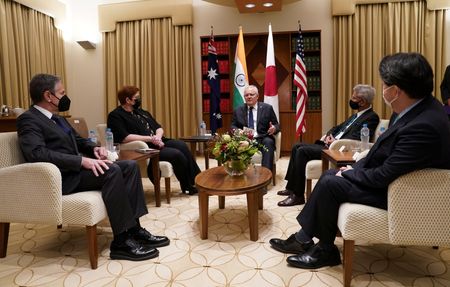
Quad ministers address Indo-Pacific ‘coercion’, climate, COVID

By Humeyra Pamuk and Kirsty Needham
MELBOURNE (Reuters) – The United States, Australia, Japan and India pledged on Friday to deepen cooperation to ensure the Indo-Pacific region was free from “coercion”, a thinly veiled swipe at China’s economic and military expansion.
Foreign ministers of the so-called Quad group, meeting in the Australian city of Melbourne, also promised to increase cooperation on COVID-19, cyber threats and counter-terrorism. In a joint statement, they vowed to work on humanitarian relief, disaster assistance and the delivery of infrastructure to the region, and condemned North Korea’s “destabilising ballistic missile launches” in violation of U.N. Security Council resolutions.
They said their informal Quad grouping was determined to deepen engagement with regional partners, and increase their capacity to combat unregulated and illegal fishing. U.S. Secretary of State Antony Blinken travels onwards to Fiji on Saturday to meet with Pacific island leaders to whom fishing and climate change are likely to be priority issues. “We agreed to boost maritime security support for Indo Pacific partners to strengthen their maritime domain awareness and ability to develop their offshore resources, to ensure freedom of navigation and overflight and to combat challenges such as illegal fishing,” Australian Foreign Minister Marise Payne said after the meeting.
The Quad partners “oppose coercive economic policies” that run counter to the World Trade Organization system, “and will work collectively to foster global economic resilience against such actions”, the statement said, a reference to China’s recent trade boycotts of Australia and Lithuania. Blinken arrived in Australia this week as Washington grapples with a dangerous standoff with Moscow, which has massed some 100,000 troops near Ukraine’s border and stoked Western fears of an invasion https://www.reuters.com/world/kremlin-denies-putin-promised-not-hold-manoeuvres-near-ukraine-2022-02-08. Russia denies it has such plans.
The Biden administration wants to show the world its long-term strategic focus remains in the Asia-Pacific https://www.reuters.com/world/asia-pacific/blinken-with-pacific-trip-aims-reaffirm-us-focus-asia-2022-02-07 and that a major foreign policy crisis in one part of the world does not distract it from key priorities.
Asked by reporters on Friday whether confrontation with China in the Indo-Pacific was inevitable, Blinken replied that “nothing is inevitable”. “Having said that, I think we share concerns that in recent years China has been acting more aggressively at home and more aggressively in the region,” he said. China has denounced the Quad as a Cold War construct and a clique “targeting other countries”.
Payne said earlier on Friday the Quad’s cooperation on the region’s COVID response was “most critical”, with cyber and maritime security, infrastructure, climate action and disaster relief – especially after the recent Tonga volcanic eruption – also in focus. The Quad nations have begun holding annual naval exercises across the Indo-Pacific to demonstrate interoperability, and the United States itself conducts freedom of navigation patrols in the South China Sea.
Blinken’s trip comes after China and Russia declared last week a “no limits” strategic partnership https://www.reuters.com/world/europe/russia-china-tell-nato-stop-expansion-moscow-backs-beijing-taiwan-2022-02-04, their most detailed and assertive statement to work together – and against the United States – to build a new international order based on their own interpretations of human rights and democracy.
U.S.-Chinese relations are at their lowest point in decades with the world’s top two economies disagreeing on issues ranging from Hong Kong and Taiwan to the South China Sea and China’s treatment of ethnic Muslims. Biden told Asian leaders in October that the United States would launch talks on a new Indo-Pacific Economic Framework. But few details have emerged and his administration has been reluctant to offer the increased market access Asian countries desire, seeing this as threatening American jobs.
Critics say the lack of U.S. economic engagement is a major weakness in Biden’s approach to the region, where China remains the top trading partner for many of the Indo-Pacific nations.

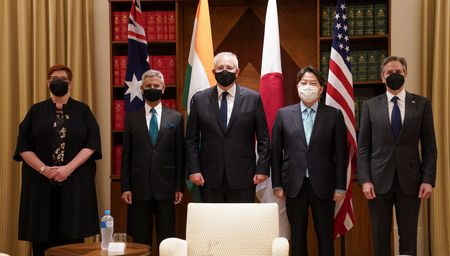
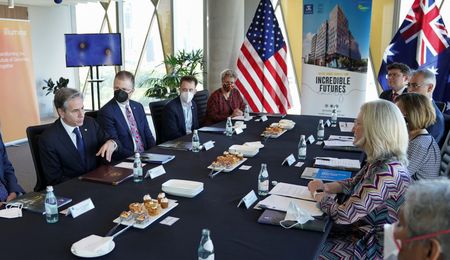
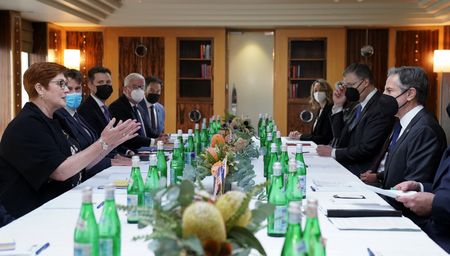
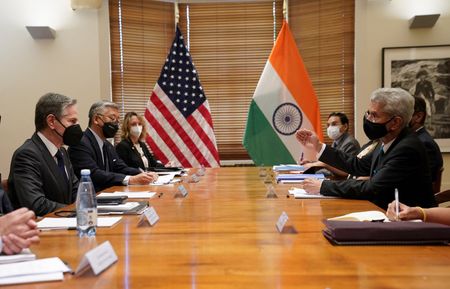
















POST COMMENTS (0)